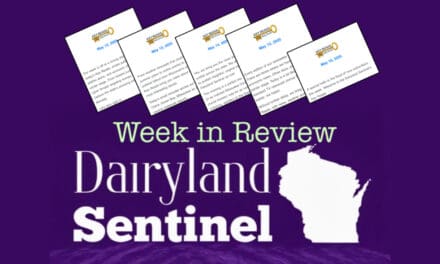4.11.25
MADISON, Wis. — A state audit released Friday revealed that Wisconsin’s Department of Administration and other agencies lack comprehensive tracking of funds spent on diversity, equity, and inclusion initiatives, complicating efforts to assess their scope and impact. The Legislative Audit Bureau’s report, numbered 25-05, examined DEI activities across state agencies, excluding the University of Wisconsin System, amid heightened scrutiny from Republican lawmakers pushing to curb such programs.
The audit, initiated at the request of the Joint Legislative Audit Committee in May 2024, found that the Department of Administration, which oversees state operations, could not fully quantify DEI-related expenditures due to inconsistent record-keeping. “We found that DOA and other state agencies did not comprehensively track expenditures related to DEI activities, making it difficult to determine the total amount spent,” the report stated. It noted that while some agencies reported specific DEI costs, others embedded these expenses within broader budgets, obscuring transparency.
This report shows that taxpayers spent millions of dollars on DEI with very little to show for it. Thanks to these findings, we can now more clearly identify wasteful and abusive spending by our agencies, and end it for good.
–Senator Eric Wimberger (R-Oconto)
The report reviewed compliance with a 2019 executive order by Gov. Tony Evers, which mandated agencies to develop equity and inclusion plans. These plans aimed to address employment barriers and promote inclusive workplaces. Auditors identified 27 full-time positions across agencies focused on DEI, with salaries totaling $2.5 million in fiscal year 2023-24. However, the report highlighted that agencies often failed to document how these roles or related programs directly tied to DEI objectives, limiting accountability.
Training programs also came under scrutiny. The audit examined 29 DEI-related training sessions offered by the Department of Administration, attended by 1,200 employees in 2023. Topics included unconscious bias and cultural competency, but the report noted inconsistent data on costs and participation. Some agencies, like the Department of Corrections, integrated DEI principles into broader training, further clouding expenditure tracking.
Republican lawmakers, who have criticized DEI initiatives as wasteful, are likely to use the findings to bolster calls for restrictions. Assembly Speaker Robin Vos, a vocal opponent, had previously pushed for the audit, framing DEI as a divisive priority. Democrats, including Evers, defend these efforts, arguing they foster equitable workplaces and better serve Wisconsin’s diverse population.
Taxpayers are spending vast amounts of money on programs that barely get started or are rarely completed. The ‘action steps’ by agencies brought forward in this report are incomplete, and no one at the top seems to mind at all.
–Representative Robert Wittke (R-Caledonia)
The audit made no recommendations regarding the continuance of DEI programs but urged better documentation and oversight. It suggested the Department of Administration establish standardized reporting for DEI spending and clarify the roles of dedicated staff. “Without such measures, the Legislature and public cannot fully evaluate these activities,” the report concluded.
The findings arrive as national debates over DEI intensify, with President Donald Trump advocating for federal rollbacks. In Wisconsin, the report may shape upcoming budget discussions, especially as Republicans control the Legislature. The Department of Administration acknowledged the audit’s recommendations, pledging to improve tracking without committing to specific changes.
The report’s release marks a pivotal moment for Wisconsin’s DEI landscape, highlighting tensions between transparency demands and efforts to address systemic inequities. As lawmakers digest the findings, the path forward remains uncertain, with potential reforms hinging on political negotiations in the 2025-26 session.
Of Note:
- In Fiscal Year 2023-24, 12 state agencies spent $2.2 million on salary costs for 47 positions with duties related to diversity, equity and inclusion.
- Agencies required to develop equity and inclusion action plans outlined 192 DEI-related actions they expected to complete in fiscal year 2023-24, but completed just 81 actions, or 42%.
- Just eight of the required state agencies could provide auditors with some measure of cost information for completing these actions, totaling $444,300.
- Two state agencies, the Departments of Justice and Public Instruction, did not complete any of the DEI-related actions they had planned for fiscal year 23-24.
- Despite not completing any actions, the Department of Public Instruction spent more than $59,000 in salary costs for staff to attend committee meetings for the purpose of implementing equity and inclusion action plans.
- DPI has four such committees that met 78 times in FY23-24; an Equity and Inclusion Plan Workgroup that met 34 times, an Equity and Inclusion Leadership Committee that met 29 times, a Justice, Equity, Diversity, and Inclusion Committee that met 11 times, and an Equity and Inclusion Plan Monitoring and Implementation Oversight Taskforce that met four times.
- In just one year, agency staff spent 4,990 hours attending DEI committee meetings, costing taxpayers hundreds of thousands of dollars in salary costs.
- In 2023, 23 state agencies spent an estimated $705,300 in salary costs for time spent attending DEI training.
- In 2022, DOA found that 5 of the 21 agencies did not consistently comply with open meetings laws. However, the Legislative Audit Bureau found that at least 6 agencies did not consistently comply with open meetings laws, and 3 did not keep minutes, including six agencies that did not provide public notice of meetings.


















